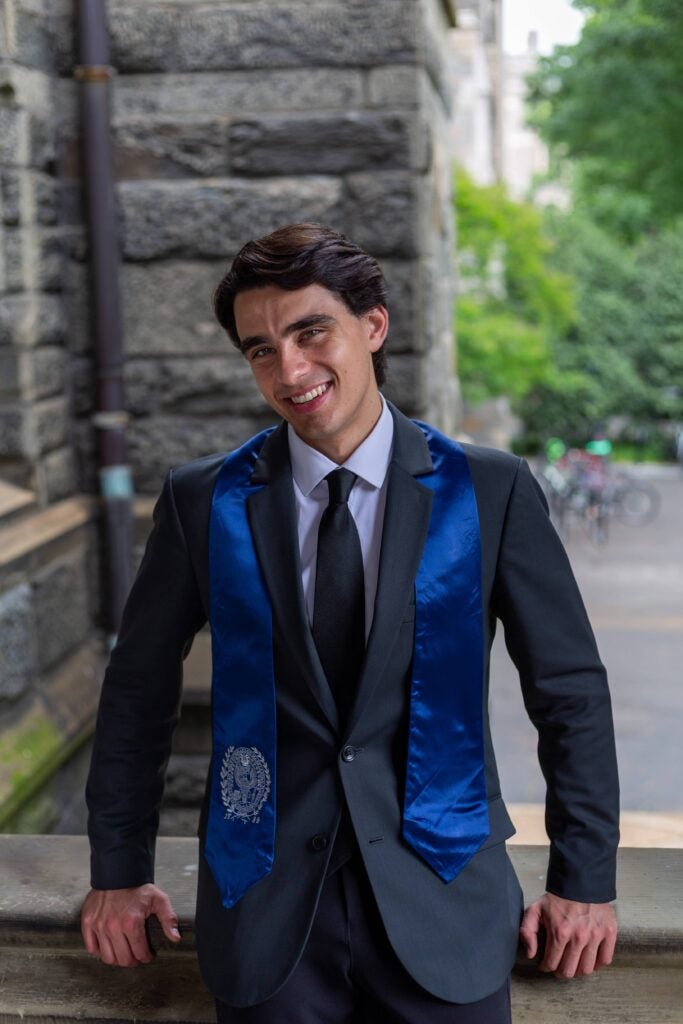Interview with Pace Schwarz (CAS ’23): Kalorama Summer Research Fellowship Scholar
Posted in Announcement News
Pace Schwarz (CAS ’23) discusses his paper, “Reviving Class Discourse in the Language of Occupy Wall Street”
By Lindsey Gradowski (CAS ’24)

Pace Schwarz did not plan on majoring in History at Georgetown. His freshman year, Schwarz took Professor McCartin’s HIST-1099 course, “U.S. Working Lives,” which according to him, was the first time a history class made him feel like there was a purpose other than learning trivia. Schwarz said that Professor McCartin’s class made him realize that, “what I think I know is the result of a political project; there is contention over what stories are told and determining which of those stories are told in an exercise in power.” This experience started Schwarz down a path towards a history major, with a particular interest in U.S. labor studies and radical politics from the 1920s to the present day.
Concentrating on radical labor politics made Schwarz’s Kalorama Fellowship research question a natural choice. Building on research from a previous course, Schwarz formulated the research question: why were the Occupy Wall Street protests so effective in reviving class consciousness? And why was there a need to revive this consciousness in the first place? Schwarz concluded that Occupy Wall Street touched on three key issues that motivated workers, including combatting dominant neoliberal economic theories and conservative moralism, which, respectively, valorize market freedoms over individual equity and claim that the resulting inequality is a reflection of natural, social-scientific, or religious laws rather than naked greed. Schwarz also discussed his conscious effort to focus on primary sources in an attempt to fill a gap in the existing literature, as notes and reflections from the protestors have been critically under-analyzed. If you want to read more about Schwarz’s complex and illuminating findings, you can read his full paper here.
Schwarz reflected on his time as a History major and how it has prepared him for a career identifying intersections between science and technology and policymaking. He said, “I cannot help but see everything that I am and everything that I do in the context of 250 years of white supremacist America and 600 years of an imperialist project begun in Europe.” This perspective of looking at the world has led Schwarz to think about how scientific innovations are used, and what ideology those scientific breakthroughs might carry with them, leading to a conclusion that a History education is imperative to properly understanding how to apply technology responsibly. And his History major at Georgetown was critical in coming to these understandings about the world. Schwarz recalled talking to Professor Leonard about, “what history is and what history does” when designing his research proposal, and his courses that utilized a variety of primary sources and taught Schwarz to push the boundaries of what counts as a “text,” from non-history journals to pieces of art.
Schwarz spoke equally as highly about the Kalorama Fellowship. For someone who wanted to pursue self-directed research, it was the perfect fit. The bar to entry was lower than he expected, with a very direct format and clear process. When asked what advice he would give to prospective applicants, Schwarz replied, “just do it!” The world needs more people who understand history and how it both shapes our conceptions of the present and allows us to dissect our current condition, and the Kalorama Fellowship is a great way to grow and develop as a historian.
